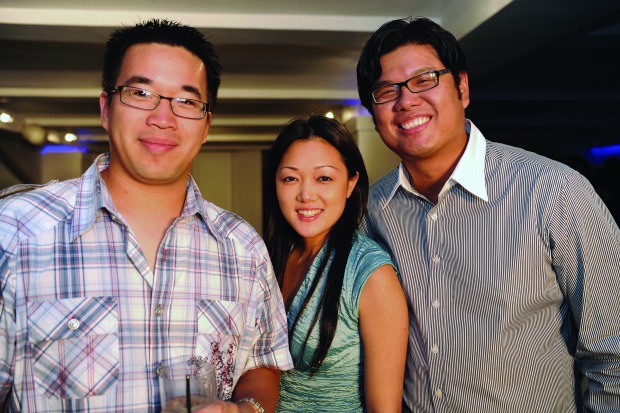Chicago retailer credits ignorance of risk for its success
By Susie An

Chicago retailer credits ignorance of risk for its success
By Susie AnSometimes risk can be masked by a lack of experience and knowledge. But that doesn’t mean someone can’t find success. More than 10 years ago, Jon Cotay took a chance on a venture he knew nothing about. Today, it’s paying off.
Cotay’s a man with a lot of energy. If he’s not managing 400 vendor accounts or keeping tabs on 270 employees, he’s likely at a fashion event.
“The funny part is all three of us are really not the most fashionable people out there. If we had to look back, we were just like what the heck were we thinking?” he said.
Eleven years ago, he and two college friends founded Akira, a fashion retail company. Cotay said fashion still doesn’t come naturally to him. His assistant had to tell him not to wear shorts and flip-flops to our interview. Instead, he wore a sharp blazer and jeans.
In just over a decade, he and his two partners Erikka Wang and Eric Hsueh built Akira into 17 stores across the Chicago region with an online shop that sells internationally. And yet when they all attended the University of Illinois in Urbana Champaign not one of them studied fashion or business. Hsueh and Wang studied Management Information Systems. Cotay majored in nursing.
“We actually bonded around food. All of us are Asians. Different people worked in different restaurants. The three of us would get together and barter food,” Cotay said.
After graduation, all three worked in fields related to their majors. Cotay had multiple nursing jobs, including a full time shift at a hospital just to keep busy. Then, one day, Erikka Wang wasn’t feeling satisfied with her job. She wanted something new. So she presented Eric Hsueh and Cotay with a crazy idea, a career in fashion retail.
“We started laughing. We’re like,’really, the three of us would open something in retail.’ And we didn’t even know what the scope of retail was. We didn’t know about brands. We didn’t know anything about distribution. We didn’t know anything about how the retail market worked,” he said. “We just thought it was kind of like a cool idea to get started.”
Cotay was 28-years-old at the time. After a few years of nursing experience, his parents expected him to go to med school, not run a business. But he decided to take a chance. He and his partners opened their first Akira store in Bucktown in 2002.
“For the first three years, I didn’t actually tell my parents I owned the business. My parents are conservative and everything like that, so I didn’t want to put them on a lot of stress,” he said.
Cotay never really officially told his parents he had started a business.
“Over time, they just realized, ‘what is Jon doing at this store. Why are you always there?’ Every time they asked me why are you always there a lot. I say, ‘oh, I work there part time,’” he said.
Actually, he and his partners worked overtime. They noticed most stores in the area sold luxury goods and were only open from 11 to 5. They tried something different. They brought in more affordable options and kept the doors open until 9, sometimes later if they were just hanging out on a Friday night.

Cotay said it was an immigrant work ethic that drove them. Before he was born, Cotay’s grandparents emigrated from China to the Philippines. He watched them work hard to keep their own small business going. That stuck with him when he came to the U.S.
But his parents still wonder about his career in medicine.
“I think even 7 years into the business they asked me if I would still consider going to med school. And I’m like I don’t think that’s going to happen now. This is it. This is my baby right now,” he said.
Cotay’s parents might’ve worried if they knew their son put his savings into opening a clothing store without having a business plan. This is the first year the company brought in business consultants. And Cotay said they all question how Akira got where it is today without a set strategy.
“We were all in some way ignorant about it. We kind of like had more confidence in ourselves to get it done. But if we knew now how challenging it was, we would probably talk ourselves out of it,” he said.
It all seems pretty risky in hindsight. But Cotay and his partners may have been too busy building a successful business to notice.
“At What Cost?” is made possible in part by the John A. Wing Society, an initiative of the Illinois Humanities Council to improve dialogue about business and the common good.